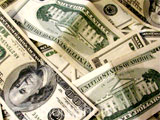U.S. Workers’ Pay Decline Poses Consumer Risk
Post Views 0Income gains in the U.S. are slowing and worker’s slice of the earnings pie is shrinking down, raising the risk that the consumer spending slackens in the next year.
The Commerce Department data on Nov. 22 showed that the gross domestic income, or the money earned by the people, business and government agencies whose purchases go into calculating growth, rose at an average 2.8 percent annual rate from April though September after climbing 4.3 percent in the previous six months. Employment compensation from last quarter accounted for its smallest share since 1995.
In contrast, the portion accruing to corporate profits was the biggest since 1950, showing companies are hoarding cash as concern grows that a European country will default on its debt and that deficit-reduction gridlock in Washington will continue to progress. Without more pay and a pickup in hiring, households may ring in 2012 by making budget cuts on their own.
”Businesses are very cautious so they’re not hiring and they’re not distributing their profits to consumers as they had in past expansions,’’ said Michelle Meyer, who is a senior U.S. economist at Bank of America Corp. in New York. ”With slow wage and salary growth, consumer spending will be on a sluggish trajectory.”
Today, the stocks rose amid speculation euro-area leaders will do more to fight the debt crisis. At 9:55 a.m. in New York the Standard & Poor’s 500 Index climbed 0.5 percent to 1,167.59. Late on Nov. 24, Treasury securities fell, pushing the yield on the benchmark 10- year note up to 1.95 percent from 1.89 percent.
Yesterday, the German Chancellor Angela Merkel repeated her opposition to joint euro-area bonds, damping optimism that politicians will agree to use the potential remedy for the region’s woes.
Today, Russia’s central bank left the refinancing rate at 8.25 percent after two increases this year as Europe’s crisis exacerbates a cash shortage in the economy. The policy makers are trying to prevent capital from flowing out of the country as banks in western Europe withdraw cash to cope with the crisis.
In Asia, the consumer prices fell in the month of October in Japan for the first time since June, casting doubt on central bank forecasts for the world’s third-biggest economy to emerge from more than a decade of deflation. The country’s statistics bureau said that the costs excluding fresh food slid 0.1 percent last month from a year earlier. The commodity prices are sinking, reflecting another risk of the global slump.
Another Commerce Department reported two days ago said that the slowdown in U.S. consumer spending may already be on train after the consumer spending, which accounts for about 70 percent of the worlds largest economy, rose 0.1 percent in October following a 0.7 percent increase in the previous month.
A pickup in spending in the third quarter, a 2.3 percent gain at a continual rate after a 0.7 percent increase in the precious three months, was the ”the worst possible outcome,” Tom Porcelli, who is the chief U.S. economist at RBC Capital Market Corp. in New York, said in a Nov. 22 interview on Bloomberg Television, since it was ”entirely because of a draw down in savings.”
U.S. Workers' Pay Decline Poses Consumer Risk by Harrison Barnes



 San Diego County Back to Full Employment
San Diego County Back to Full Employment  Amazon May Have a Better Grasp on Workplace Culture
Amazon May Have a Better Grasp on Workplace Culture  Expected Changes in 2016 to the Workplace
Expected Changes in 2016 to the Workplace  Best and Worst States for Teachers to Teach
Best and Worst States for Teachers to Teach  US Dollar Gaining Momentum
US Dollar Gaining Momentum  10 Jobs with the Fastest Growing Salary in 2017
10 Jobs with the Fastest Growing Salary in 2017  2006-2015 Median Weekly Earnings of Full-Time Workers in the United States
2006-2015 Median Weekly Earnings of Full-Time Workers in the United States  Top Five Reasons Talented Employees Quit
Top Five Reasons Talented Employees Quit